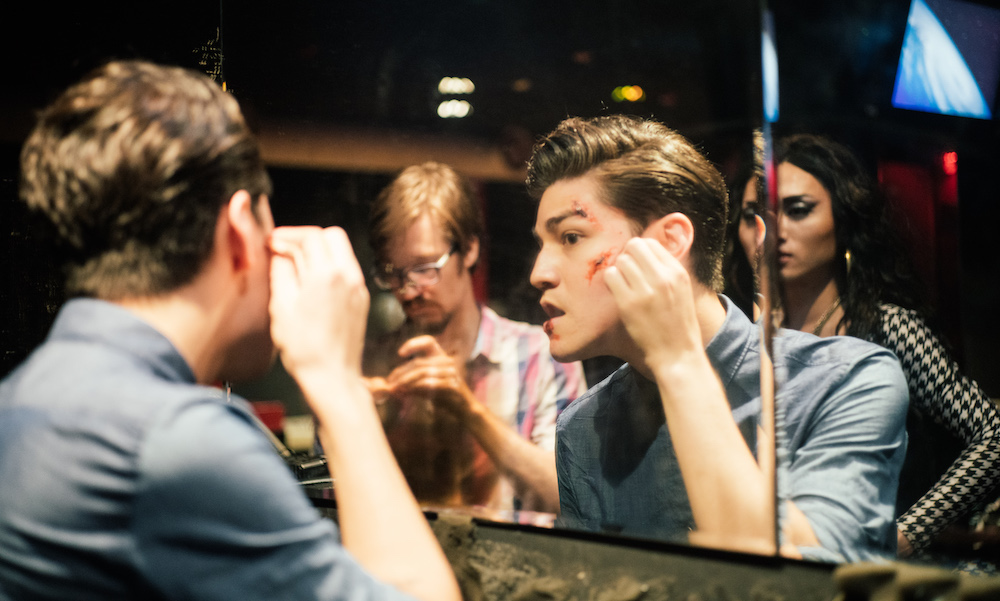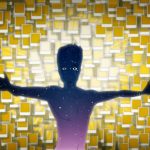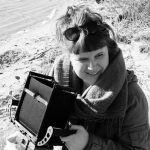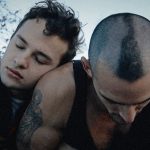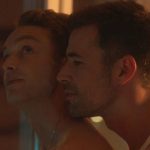By David Pountain
When the young, American Jim Park gets violently thrown out of a Seoul club after breaking up with his boyfriend, the experience sends him on a 24-hour journey of despondent introspection that culminates in a potential new beginning in the tenderly moving short drama, Ultra Bleu. Jim himself is portrayed by the film’s own writer-director, Nick Neon, who lives up to his name by presenting a rich, entrancing environment of urban melancholy and youthful ennui amidst luminous colour and dreamy synths (the latter courtesy of composer Nikolas Thompson).
With Ultra Bleu now streaming free on FilmDoo, we spoke to Nick Neon about the inspiration behind his new short.
What does the film’s title, ‘Ultra Bleu’, mean to you?
It’s named after one of my favourite albums, Ultra Blue by Utada Hikaru. When I first heard that album back in college, I remember thinking there was something really evocative about describing a color as ‘ultra’. The premise of my film was inspired by a real life lover who broke my heart and it was the most painful break up I’ve ever had to process. Eventually, I decided to process that whole experience by making a film. ‘Ultra Blue’ was the only title that ever popped into my head. I felt there was this parallel between how intensely we feel things in our 20s (Ultra) and how solemn heartbreak can feel (Blue). I changed the spelling from ‘Blue’ to ‘Bleu’ because my ex was French and I didn’t want to forget the part he played in my coming of age.
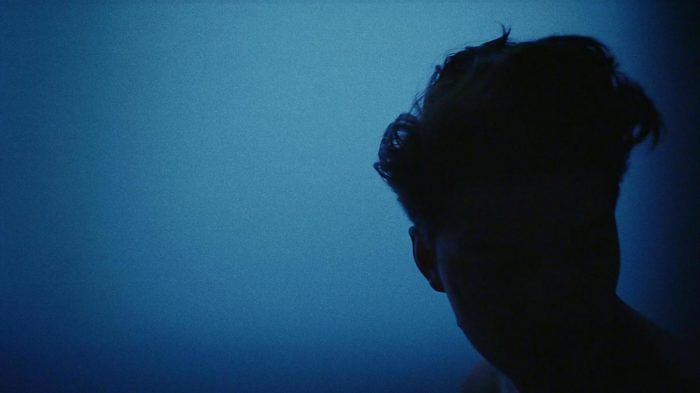
As a half-Korean American from New York living in Seoul, can you sometimes relate to the alienated state of your character Jim?
I think anyone who moves to a new country will most likely experience alienation to some extent. I was very lucky to have a core group of friends, both international and local, who treated me like family. But Korea is very homogenous and as much as I identified with being Korean back in the states, it quickly became clear that I was in a very different culture. The LGBTQ community is also still fighting an uphill battle for visibility and acceptance. So I definitely had my fair share of alienating moments but I must say, nothing feels as alienating as heartbreak no matter where you’re living.
How would you say the lights and architecture of the city contribute to the film’s mood?
To be honest, it wasn’t so much the lights and architecture that set the tone for the film. It was the atmosphere and spirit of the people. Seoul is truly the city that never sleeps. Coming from a New Yorker, that’s saying a lot. But I’ve had countless nights that began around 7pm for coffee, followed by dinner at 9pm, then dancing and drinks from 11-6am, a 2-hour session of Karaoke and then breakfast possibly with more drinks. This is the spirit and tone of the film. It’s only 24 hours but it’s nonstop. I trusted the physicality of the environment to provide some unique texture but the mood was all about the different people Jim interacts with over the course of the film.
Jim seems pessimistic about the current array of online dating apps. Do you share in your character’s suspicions or do you feel that these new channels for meeting people can allow for genuine connections?
I think dating apps can encourage really bad habits in people. But I don’t hold apps accountable, I hold people accountable. When I was younger I had a more antagonistic relationship with apps just because 20-something guys are usually more concerned with playing the field and my dramatic ass was searching for the elusive ‘one’. I think a connection, if genuine, can and will be formed through any capacity whether that involves the internet, apps or ‘real life’. I think it’s wonderful that we can meet amazing people from all over the world now. Some of my favourite relationships or fondest memories have only happened because of these new channels. At the end of the day, intention is more important than the vehicle of connection.
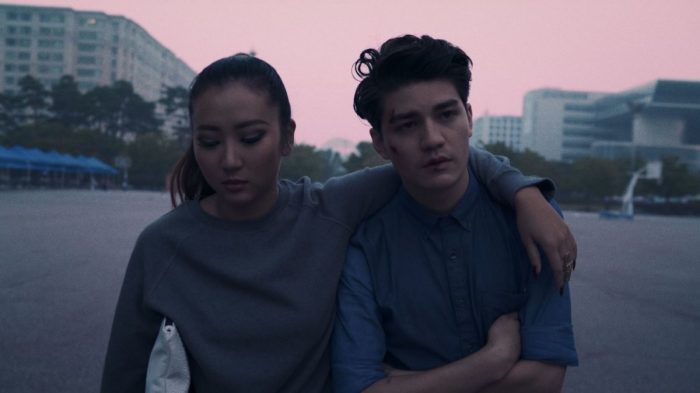
Would you characterise the lack of direction and sense of alienation displayed in these characters as a very ‘millennial’ state of being?
I think being a lost youth is a rite of passage that is universal for every generation. However, I do find the intensity and speed with which we are experiencing these extremities of emotion to be distinctly a ‘millennial’ issue. I blame technology and the internet for the overwhelming information overload that makes us so unsure of what we want. It’s like when you try to order something at a restaurant but the menu is thicker than a Harry Potter book. When you have so many options, you can lose sight of what you actually want in life or love. Not every option is everything to everyone.
Do you have any plans yet for a next project?
I do! I’m currently working on a sequel to Ultra Bleu titled Zero One. It takes place one month after the events of Ultra Bleu where Jim’s visiting his father back home in NYC for the first time in five years but he doesn’t really have much to show for his time away. It’s New Year’s Eve and Jim’s facing his quarter life crisis. We’re shooting in December and I’m super excited.

